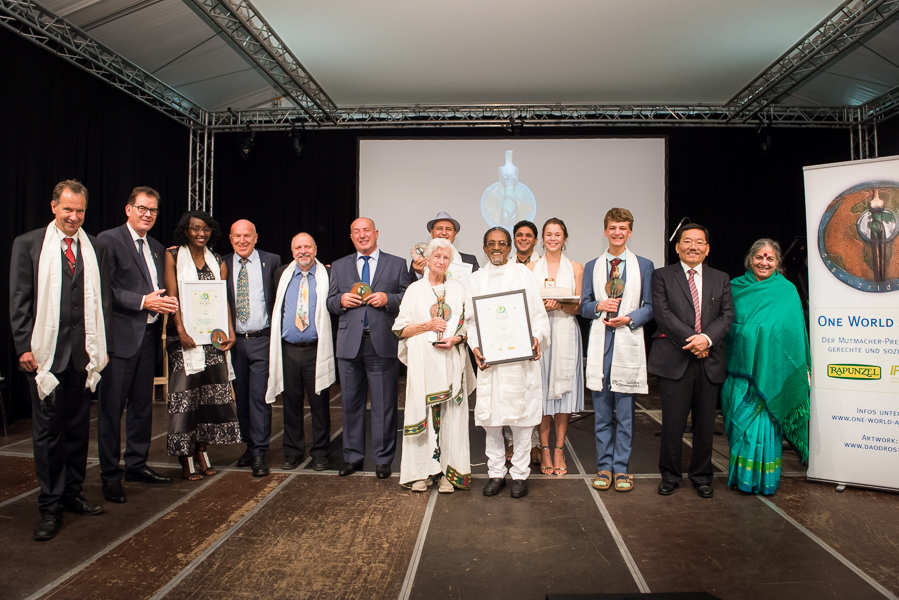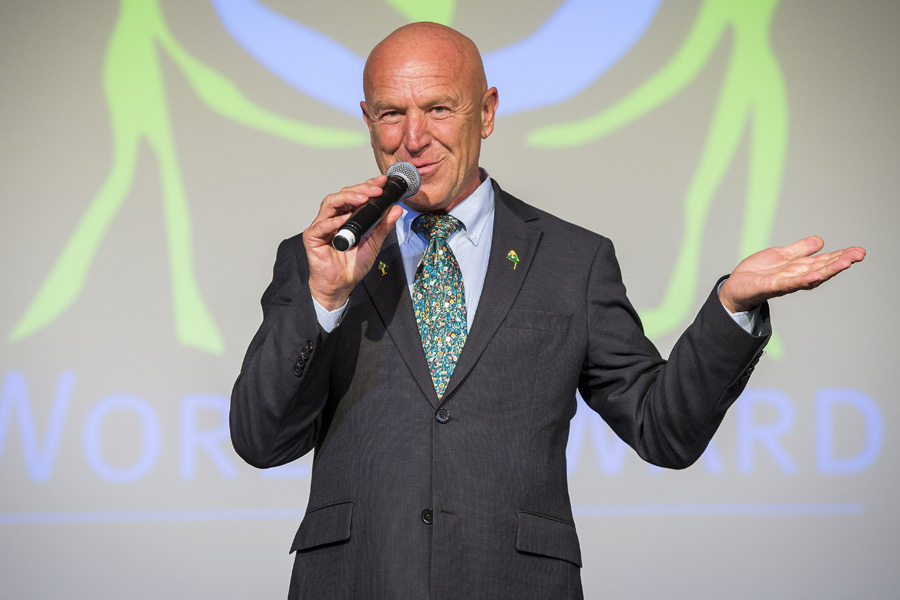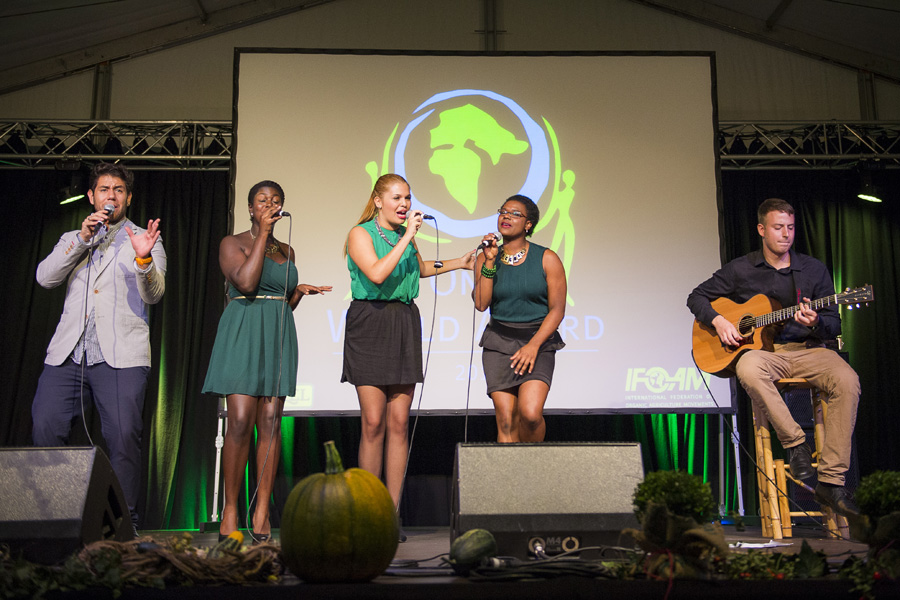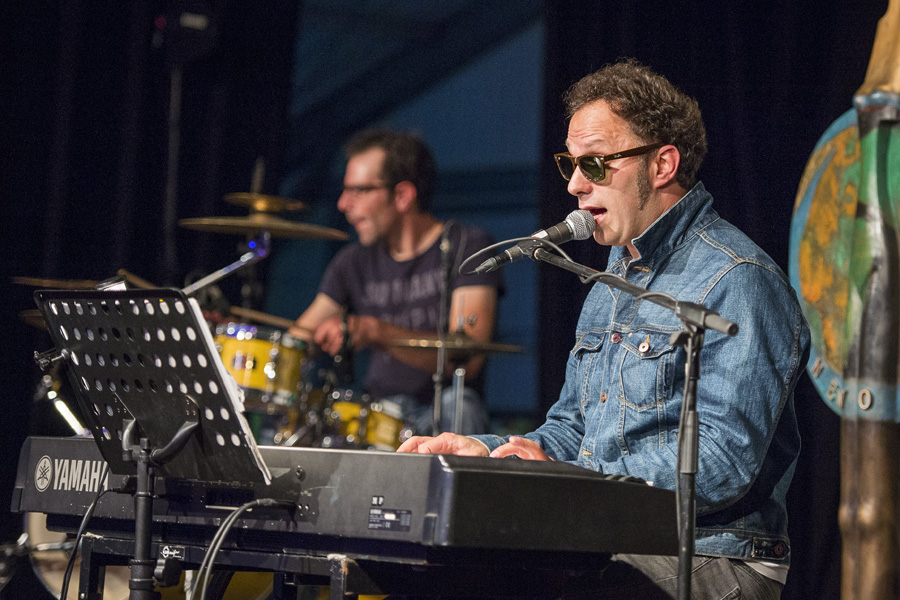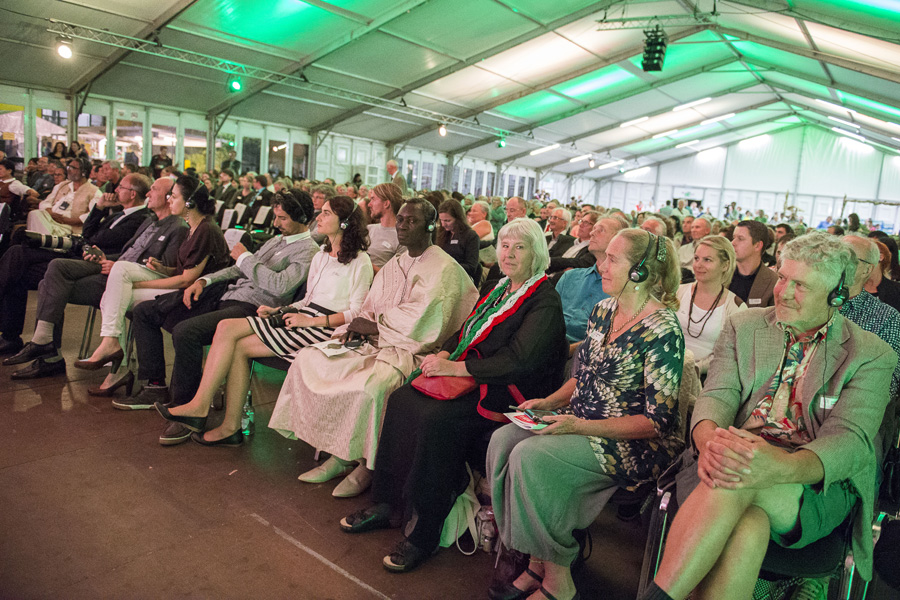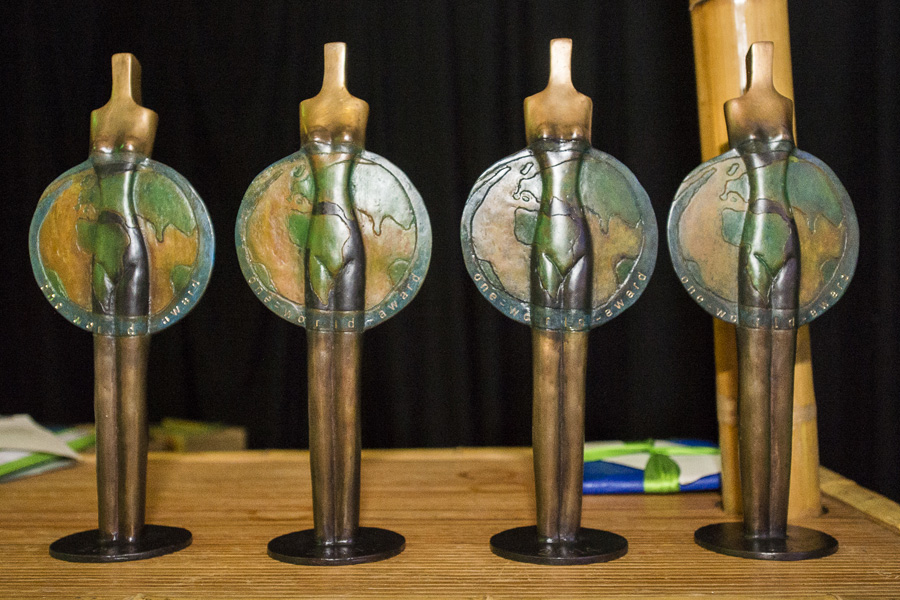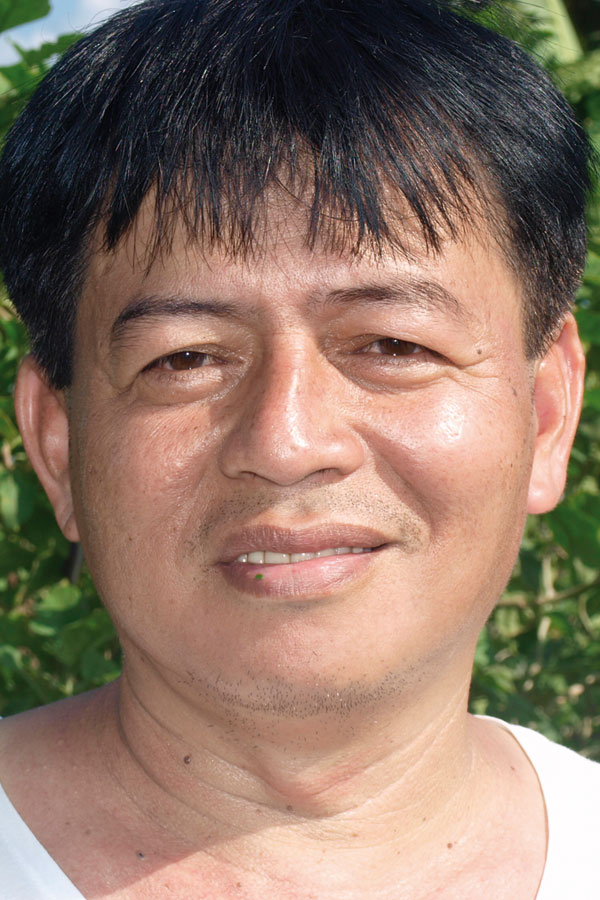Nacianceno Mejos Pacalioga
One World Award 2012
Nacianceno Mejos Pacalioga is known in his hometown as Mayor Jun. He must have spent a happy childhood on his family’s farm because the passion for agriculture has accompanied Mayor Jun ever since. After his studies he started his professional career as a community organizer, but he always envisioned that he could best help society as a politician. His first political engagement was the town council of Dumingag. After 9 years as deputy mayor, he was elected mayor in 2007 in a very tight election race. In the center of his political campaign stood the development of organic agriculture as one pillar of an integrated concept for a sustainable rural development. His opponent running for mayor was a businessman working in the agrochemical industry! Despite manipulations by his opponent Mayor Jun won the election by a narrow margin of a few hundred votes. After successfully implementing his program he was reelected mayor in a landslide victory in 2010. The energy for his extraordinary commitment and his unfailing efforts he draws from the work on his own, 3 hectare big farm.
Enthusiasm for organic cultivation
Mayor Jun is responsible for about 50,000 people living in 44 villages. In many of the villages, some of which are very difficult to reach, the inhabitants belong to the indigenous Subanan tribe. The economic situation in Dumingag, however, is his greatest challenge as 90% of the people there live below the Philippine poverty level. Together with the municipal employees and the people of Dumingag, the “Genuine People’s Agenda” (GPA) was developed as the basis for the sustainable development program. The program encompasses 15 strategic items such as the development of organic agriculture or the improvement of health services, environmental protection, security, peace and tourism.
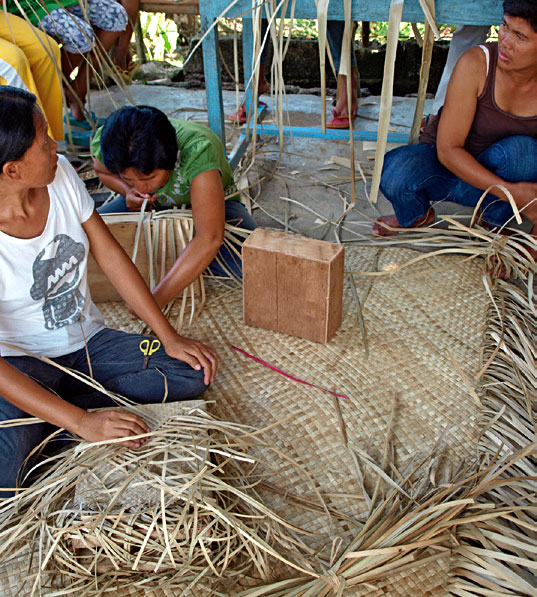
Frauen verarbeiten Sisal zu Taschen und vermarkten diese in ihren Läden|
Practical workshops on organic agriculture are organized in all the villages. Once the farmers’ interest for this farming method has been stirred they are offered intensive training courses at the Center for Organic Agriculture. The enthusiasm for organic cultivation has even spilled over to the local military station. The garrison gives the impression of being an organic farm rather than a military outpost. Organic agriculture literally enlivens the otherwise rather dull, daily routine of the soldiers.
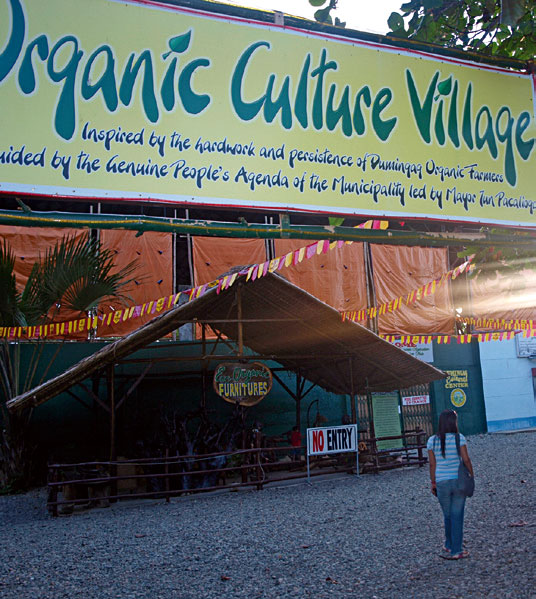
Organic Culture Village mit Biomarkt Restaurant und Gesundheitszentrum|
All these activities have led to an impressive track record. Today, the food supply has been secured among other things through the cultivation of 98 different, local rice varieties that no longer need to be purchased from multi-national seed corporations. An interesting indicator for the degree to which the program has been implemented so far is the fact that only 2 of formerly 10 local pesticide traders are still in business. During the first developmental phase, the number of organic farmers increased from only 20 to 500.
The goal of the current project phase is to convert all remaining conventional farms in Dumingag to organic. This also includes a marketing campaign boosting natural products in the local market. The center of town features an “organic village” with a farmers’ market, an organic restaurant, a health center and a store for local artisan products.
Beacon for sustainable, rural development
The GPA includes numerous projects with the focus on poverty alleviation such as the installation of vermiculture compost units, tree nurseries, fish ponds, mills, solar drying plants, the cultivation of commercially used forests and the planting of rubber trees. Particularly successful are integrated systems that include the cultivation of rice and duck breeding and/or fish breeding. For local women many small businesses were set up such as handicraft shops or production shops for herbal medicines and cosmetic products. The new perspectives motivated many people who had left Dumingag to find work in the big cities but ended up in the slums instead to return to their villages.
A great emphasis is put on the conservation of the cultural heritage. The traditional lifestyle of the Subanan tribe is protected and supported. When one watches the kids in the village nurseries who learn how to express in their dances the beauty of nature and agriculture and the necessity to protect these values, one gets a glimpse of a beautiful synthesis between “agro” and “culture”.
There are still other areas in which Dumingag is successfully “different” thanks to the GPA. Especially worth mentioning is the success of the non-smoking campaign and the program for crime prevention. Despite the extreme poverty situation the crime rate is nearly zero. A big effort is placed on maintaining the town and the village surroundings orderly and clean. In Dumingag one also encounters hardly any car speeding and traffi c chaos that is otherwise ubiquitous in the Philippines. 30 km speed limit zones have been set up all over town.
A great emphasis is put on the conservation of the cultural heritage. The traditional lifestyle of the Subanan tribe is protected and supported. When one watches the kids in the village nurseries who learn how to express in their dances the beauty of nature and agriculture and the necessity to protect these values, one gets a glimpse of a beautiful synthesis between “agro” and “culture”.
There are still other areas in which Dumingag is successfully “different” thanks to the GPA. Especially worth mentioning is the success of the non-smoking campaign and the program for crime prevention. Despite the extreme poverty situation the crime rate is nearly zero. A big effort is placed on maintaining the town and the village surroundings orderly and clean. In Dumingag one also encounters hardly any car speeding and traffi c chaos that is otherwise ubiquitous in the Philippines. 30 km speed limit zones have been set up all over town.
Without question, Mayor Jun is a very unusual mayor also because he has the courage to confront the risks of his policy. In one situation, he was subjected to extreme political pressure and refused to implement a heavily-subsidized government program that was part of a so-called aid program. In this programme farmers were to receive chemical-synthetical fertilizers and hybrid seeds. The rapid decline of the market for agrochemicals in the wake of the conversion to biological agriculture also meant trouble for Mayor Jun. Rather dangerous is his consequent fight against corruption. When he refused to grant a license to a gold mining company for the extraction of gold he was offered several million Pesos bribe money. After declining the bribe, the municipality is infiltrated by armed gold miners who are apparently supported by the gold mining company.
Success and courage of the charismatic mayor have also brought him approval. Two years ago, he received the national award for the best implementation of a rural development concept. Dumingag is the national model town for poverty alleviation and during the last two years, the community was awarded the price of the World Health Organization (WHO) for the most successful non-smoking campaign.
Dumingag is an extraordinary town that became a beacon for sustainable, rural development within 5 years only. If mayors and politicians in regions around the world would follow the example of Mayor Jun and the people of the municipality a breakthrough for the desperately needed, socially and ecologically sustainable development could be reached.
Success and courage of the charismatic mayor have also brought him approval. Two years ago, he received the national award for the best implementation of a rural development concept. Dumingag is the national model town for poverty alleviation and during the last two years, the community was awarded the price of the World Health Organization (WHO) for the most successful non-smoking campaign.
Dumingag is an extraordinary town that became a beacon for sustainable, rural development within 5 years only. If mayors and politicians in regions around the world would follow the example of Mayor Jun and the people of the municipality a breakthrough for the desperately needed, socially and ecologically sustainable development could be reached.



